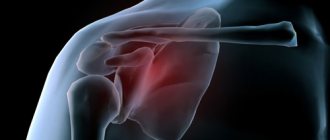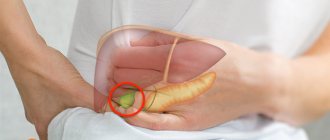General information
Burning sensation, like pain, is an important diagnostic symptom. A burning sensation in the stomach most often occurs in the initial stages of gastritis or peptic ulcer .
The symptom can be relieved with medication, because prolonged burning can lead to cancer. Unregulated loads on the digestive system lead to changes in acidity, disruption of the glandular tissues of the stomach and their integrity. When the “stomach is on fire,” in contrast to heartburn , it does not burn in the upper parts of the larynx (as a result of reflux disease and involuntary reflux of food into the esophagus), but discomfort is felt somewhat lower - in the epigastric region. Despite the different etiologies, their treatment is similar.
Bibliography:
- Practical Manual of Gastroesophgeal Reflux Disease /Ed.by Marcelo F. Vela, Joel E. Richter and Jonh E. Pandolfino, 2013 –RC 815.7.M 368
- Danilov D.V. Modern possibilities for the treatment of erosive esophagitis / Danilov D.V., Shuleshova A.G., Bondareva K.A. // Evidence. gastroenterology. - 2021. - T. 6; No. 1. – pp. 26-30.
- Initial and maintenance therapy in patients with gastroesophageal reflux disease / Simanenkov V.I., Tikhonov S.V., Lishchuk N.B. // Med. alphabet. - 2021. - T. 1; No. 9 (306). — P. 8-12.
- INSTRUCTIONS for the use of the medicinal product for medical use OMEZ®10 mg LP 00328 dated 07/11/17 Date of access 11/26/18
- Kardasheva, S. S. Gastroesophageal reflux: new treatment prospects / Kardasheva S. S., Shulpekova Yu O., Leshchenko V. I. // Med. advice. - 2021. - No. 11. - P. 92-99.
- Tarasova, G. N. Pathogenetic features of damage to the mucous membrane of the esophagus during gastroesophageal reflux disease / Tarasova G. N., Smirnova E. A. // Consilium Medicum. - 2017. - T. 19; No. 8-2. — P. 7-12.
- Trukhan, D. I. Current aspects of antisecretory therapy of gastroesophageal reflux disease / Trukhan D. I., Grishechkina I. A. // Med. advice. - 2021. - No. 15. - P. 28-35.
Pathogenesis
The burning sensation is accompanied by irritation and injury to the mucous membranes due to increased acidity of gastric juice, peptic enzyme activity and the formation of ulcers. It can “burn with fire” when a person is very hungry and acidic gastric juice reaches erosive areas.
Irritation of the mucous membranes can occur not only due to acidic gastric contents, but in more rare cases it is caused by alkaline reflux . In this case, the mucous membranes are exposed to the action of bile acids , which enter the stomach through the duodenogastric reverse flow of bile.
The pathological process begins with an imbalance in the ratio of “aggressive” and “protective” factors of the digestive system. The main aggressive effect is to increase the activity of proteolytic enzymes and the level of acidity secreted by gastric juice, along with a deterioration in the motility of the digestive organs. Protective properties are reduced if:
- less mucus is produced;
- the processes of natural physiological regeneration of the epithelial surface slow down;
- local blood circulation, innervation and trophism are disrupted.
For example, this can occur under conditions of prolonged or repeated psycho-emotional stress against a background of negative emotions.
A separate predisposing factor, along with heredity and family history, are deficiencies in diet and nutrition, smoking and alcohol abuse.
The pathological process is based on proteolytic destruction of tissue by gastric juice in an area with deteriorated trophism, which is most often observed in the lower parts of the stomach. A decrease in the alkaline component and prolonged contact with acidic gastric juice is possible with spasm of the gastric sphincter - the pylorus. In addition, the level of mucin contained in mucus, the state of the apical membranes of enterocytes, and nervous and vascular trophism are important .
When the mucous barrier and the protein-lipid complex of the apical membranes are destroyed, reverse diffusion of hydrogen ions into the cell membranes occurs, which activates the kinin-kallikrein inflammatory system and increases the permeability of the capillary network. This leads to microcirculation disorder, then lipid peroxidation products as a result of oxidative degradation of lipids under the influence of free radicals, damaging lysosomes.
The negative neuro-emotional effect on the gastrointestinal tract is carried out through the anterior parts of the hypothalamus , along the path of the vagus nerve, acetylcholine, histamine and gastrin receptors in glandular tissues. The formation of acid and the proteolytic activity of the gastric glands increases under the influence of thyroid-stimulating and adrenocorticotropic hormone - the glucocorticoid effect of the adrenal glands increases and the mineralcorticoid effect of the adrenal glands decreases, the production of hydrochloric acid is stimulated and the protective and reparative properties of the mucous membranes of the stomach and intestinal tract are reduced.
Local protective mechanisms are implemented by mucoid cells that produce glycoproteins , sialoproteins and fucopolyproteins , as well as mucus coming from the oral cavity. It is alkaline and can neutralize hydrochloric acid (HCl). In general, the gastrointestinal tract is a very vulnerable system of the body, but it has good regenerative abilities.
Why does heartburn hurt?
The reflux of gastric juice with a food bolus into the esophagus, where normally there should be an alkaline environment, leads to irritation of the mucous membrane. The epithelium of the esophagus does not have a special protective layer from the aggressive effects of acid, which is located in the stomach. Therefore, the mucous membrane is damaged6. Erosion is formed - surface defects that do not affect the muscular layer of the esophagus. These wounds are additionally exposed to acid, which causes pain.
Heartburn is characterized by pain behind the sternum and in the epigastric region. It is quite easy to confuse it with the heart. A specific condition for pain in the esophagus is a direct connection with food intake7. In addition, heartburn and stomach pain worsen when bending over or in a horizontal position.
Classification
Burning in the epigastrium can be constant or occur exclusively after meals.
Constant burning sensation in the stomach
Burning painful sensations at night and in the morning are an alarming sign and a reason to consult a doctor. A constant burning sensation in the stomach and esophagus usually occurs due to pathology - gastritis , peptic ulcer or reflux disease . Most often, discomfort and pain are caused by damage to the tissues lining the digestive tract.
Burning in the stomach after eating
Swelling in the epigastric region (corresponding to the projection of the stomach on the anterior wall of the peritoneum) after eating may be due to poor nutrition. Even a small piece of a harmful or coarse product can irritate nerve endings, provoke inflammation and burning sensations.
Medicines for heartburn and pain
A common method for treating heartburn is to drink a baking soda solution, which reacts with the acid in the esophagus, neutralizing it. This method does temporarily relieve discomfort, but only for a short period of time. In addition, constant use of soda only aggravates the condition and is not recommended by any doctor.
Proven remedies for the treatment of heartburn and stomach pain:
- Proton pump inhibitors. Powerful antisecretory drugs that suppress the production of hydrochloric acid in the stomach and affect the mechanism of heartburn formation. The basic drug from this group is Omeprazole, which is the active ingredient of Omez® 10 mg. The recommended dose of Omez® 10 mg is 2 capsules per day. The effect of the drug can last for 24 hours. This is a convenient way to combat heartburn: capsules are taken 1 time 30 minutes before meals in the morning. The maximum possible duration of a course of the drug without a doctor’s prescription is 14 days4.
- H2 histamine blockers. Antisecretory drugs that are inferior in power to PPI7. Drugs rarely cause side effects when used in small doses7. Currently, proton pump inhibitors are preferred in medicine4.
- Antacids. The mechanism of action of antacids is to neutralize hydrochloric acid. In this way they relieve the symptoms of reflux, but do not have any effect on the formation of excessive amounts of acid in the stomach. Antacids1 act quickly and are often used as an emergency treatment. However, the duration of the effect of these drugs is short – a few hours1.
- Alginates. The principle of action of alginates is somewhat similar to the effect of antacids. Only they do not completely neutralize the acid, but form a layer of neutral medium between the mucous membrane and gastric juice3.
Treatment of heartburn accompanied by pain includes therapy for the underlying disease. A disease of the gastrointestinal tract can be suspected if taking the listed medications does not have a lasting effect within 2 weeks1. Changing your lifestyle along with timely treatment will help you avoid the complications of frequent acid reflux into the esophagus and prevent the occurrence of heartburn and abdominal pain.
THERE ARE CONTRAINDICATIONS, YOU MUST READ THE INSTRUCTIONS FOR MEDICAL USE OR CONSULT A DOCTOR.
Causes of burning in the stomach
Heartburn and burning can be caused by:
- unhealthy diet, for example, eating fatty, fried, spicy, smoked, etc. or too rough food;
- irregular meals, prolonged fasting;
- overeating;
- drinking alcoholic beverages;
- hypersensitivity of the mucous membranes of the esophagus;
- the presence of helminths, pathogenic microorganisms, for example, E. coli ;
- release of bile or juice from the pancreas into the stomach;
- allergic reactions;
- gastritis or peptic ulcer ;
- heart problems - angina pectoris, myocardial infarction, hypertension, aortic aneurysm ;
- drug treatment, for example, antibiotics ;
- stress;
- pressure on the abdominal cavity from a diaphragmatic hernia , as well as in late pregnant women and obesity .
The reasons can be internal or external in nature. If the reason is in nutrition, certain foods or drinks, or medications entering the body, then excluding them from the diet is an adequate solution to the problem.
Important! A burning sensation in the stomach, but not heartburn, is the cause of serious gastroenterological problems, for example, gastritis, esophagitis, peptic ulcer .
Mechanism of symptom formation
The main component of gastric juice is hydrochloric acid. It works as an activator of digestive enzymes and is an important part of food digestion. Thanks to it, an acidic environment is formed in the stomach, and the organ itself has a special mucous layer that protects against irritation.
Under the influence of certain factors, a bolus of food with enzymes and hydrochloric acid enters the esophagus from the stomach. This organ does not have a protective layer, and the environment is normally alkaline. Therefore, the acid chemically burns the walls of the esophagus, which causes a burning sensation1.
Most often, the symptom occurs 15-30 minutes after eating and may be accompanied by nausea6. The association of a burning sensation behind the sternum with food intake makes it possible to distinguish the condition from heart problems5.
Treatment with folk remedies
Many plants have healing properties for the digestive tract, including:
- horse sorrel - a fresh salad before meals will help prevent stomach discomfort that occurs spontaneously and disturbs at night;
- calamus - you need to chew this root, you can even swallow it in small quantities;
- crushed buckwheat - a pinch of this dry cereal three times a day makes it possible to prevent gastric problems;
- eggshells - after boiling the eggs, the separated shells should be crushed in a mortar and consumed in the morning, lunch and evening in an amount that fits on the tip of a knife;
- potato juice - before each meal, it is enough to squeeze out one root vegetable, take it for several weeks, the product is also an excellent prevention of symptoms such as bad taste and bad breath;
- tinctures of St. John's wort, chamomile, plantain - 1.5 teaspoons three times a day help with constant burning in the stomach;
- Pharmaceutical preparations, for example, from buckthorn bark, nettle leaves, peppermint, valerian rhizomes, calamus, have a complex effect - anti-inflammatory, choleretic, mild laxative, can normalize acidity levels and eliminate pain.
Treatment of stomach pain
To treat stomach pain, in most cases, taking medications is sufficient. Regardless of the diagnosis, the patient will have to follow a gentle diet. Eating is recommended every few hours in small portions. It is necessary to exclude all foods that can irritate the mucous membrane of the organ: fatty and sweet foods, alcohol and carbonated drinks, baked goods and sweets, sauces and spices.
Drug treatment may include several stages:
- antispasmodics and painkillers;
- sorbents;
- drugs to correct the acidity of gastric juice;
- antibiotics and others.
Surgical intervention is indicated for benign neoplasms that do not grow deep into the wall of the organ. Surgery may also be prescribed for gastric ulcers with the risk of perforation of its walls. Some structural anomalies of the organ also require surgical treatment if they interfere with the normal functioning of the digestive tract.
The Clinical Brain Institute specializes in the diagnosis and treatment of stomach pain. The clinic has the opportunity to undergo a full examination, consult with specialists of a wide and narrow profile, and receive an appointment for treatment. Therapy is carried out under the supervision of doctors until complete recovery.
First aid
If you feel an acute burning sensation, you can:
- a solution of soda or salt - half a teaspoon of soda or a pinch of salt in a glass of warm water, drink in small sips;
- milk – a glass of warm low-fat milk can help neutralize acidity;
- mineral water – natural medicinal table water is best, as it has a beneficial effect on the digestive system;
- such drugs as Rennie , Gastal , Smecta .
Why do heartburn and nausea need to be treated?
Even if the cause of heartburn and nausea is not diseases of the gastrointestinal tract (GIT), the problem should not be ignored. Frequently recurring symptoms gradually lead to the formation of the following problems:
- Esophagitis is inflammation of the walls of the esophagus. Due to constant burns, wounds are formed into which bacteria enter and an inflammatory process develops3.
- GERD – gastroesophageal reflux disease. Develops due to persistent relaxation of the esophageal sphincter6. Most often it accompanies diseases of the digestive system, that is, it occurs secondarily. But there are cases of the development of primary GERD, which is a chronic disease that requires an integrated approach.
- Narrowing of the esophagus. Ulcers on the walls of the organ become scarred, causing the lumen of the esophagus to narrow. It is difficult for a person to pass food, which significantly impairs the quality of life.
- Barrett's esophagus. Long-term damage to an organ by hydrochloric acid can provoke degeneration of the epithelial cells lining the walls. The disease is considered precancerous and can lead to the development of cancer1.
Diet for burning stomach
Diet for heartburn
- Efficacy: therapeutic effect after 10 days
- Timing: constantly
- Cost of food: 1350-1450 rubles per week
Diet is a fundamental factor in solving digestive problems. You must follow a strict diet and dietary restrictions. Avoid carbonated drinks, alcohol, everything fatty, fried, smoked, canned and spicy. It is necessary to give up baking and snacking on unhealthy foods such as crackers, chips, fast food, etc.
Food should be predominantly boiled and steamed foods, with a minimum of spices. You can even eat pureed vegetables and fruits, this will help reduce the load on the gastrointestinal tract.
What other symptoms might bother you?
The causes of heartburn and nausea after eating can be either physiological or indicate serious illnesses. Additionally, symptoms such as:
- one-time vomiting;
- pressure in the abdomen, feeling of fullness;
- pain in the upper abdomen;
- pain behind the sternum (with the formation of erosions and ulcers of the esophagus);
- belching acid;
- sour feeling in the mouth5.
Warning symptoms requiring professional intervention:
- burning is accompanied by dark vomit like “coffee grounds” or blood;
- the appearance of tarry stools (black);
- the symptom bothers you continuously for several days;
- difficulty swallowing food, shortness of breath;
- severe abdominal pain, associated and not associated with heartburn;
- continuous noticeable weight loss for no apparent reason;
- connection of heartburn not with food intake, but with medications3.
If at least one of the listed manifestations occurs, you should undergo a special examination to identify the exact cause of the condition.
Prevention
Proper diet and nutrition are the basis for successfully preventing heartburn and nausea. Additional recommendations:
- rejection of bad habits;
- correct work and rest schedule;
- weight loss;
- refusal of uncontrolled use of NSAIDs;
- wearing loose clothing without tight belts or corsets.
Timely treatment of diseases of the digestive system accompanied by heartburn, including recommendations for the use of Omez 10 mg, helps relieve heartburn.
THERE ARE CONTRAINDICATIONS, YOU MUST READ THE INSTRUCTIONS FOR MEDICAL USE OR CONSULT A DOCTOR.
Why can't you use soda?
The most famous home remedy for eliminating a burning sensation behind the sternum is baking soda. Alkali neutralizes hydrochloric acid, thereby eliminating the unpleasant symptom. However, it has been proven that the use of this method of treatment only causes harm. In the process of neutralizing the acid, a large amount of carbon dioxide is released, which distends the stomach. This can cause damage to the mucous membrane, and in the presence of an ulcer, even bleeding5. In addition, the environment in the stomach must remain acidic. Therefore, after using soda, the compensatory mechanism for the production of hydrochloric acid starts almost immediately. The result may be even more severe discomfort in the stomach and esophagus5.
Principles of heartburn treatment
Medicines for heartburn and nausea are not enough to fully combat the unpleasant condition. The basis of treatment is lifestyle correction and diet. Recommendations include:
- eating small portions 3-4 times a day;
- refusal of sour, spicy, smoked foods and foods with chemical additives, carbonated drinks, alcohol, cabbage, onions, tomatoes;
- limiting the consumption of baked goods, coffee, tea, fatty foods, sweets, sausages, fried foods;
- after eating, a quiet walk in the fresh air is recommended; it is forbidden to take a horizontal position;
- normalization of work and rest, sleep, avoidance of stressful situations;
- avoiding intense physical activity after meals, especially bending forward;
- increasing the motor activity of the body as a whole5.
Proton pump inhibitors are considered one of the most effective medications for treating heartburn6. The action of these drugs allows not only to remove the symptom, but also affects the mechanism of burning sensation. One of the representatives of the group is Omez 10 mg, a drug based on Omeprazole. It is convenient to take 2 capsules once a day, which helps eliminate the symptoms of heartburn within 24 hours2. The drug allows treatment courses of up to 14 days without consulting a specialist.










